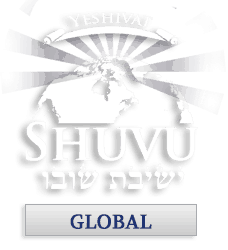אֵיכָ֥ה אֶשָּׂ֖א לְבַדִּ֑י טָרְחֲכֶ֥ם וּמַשַּֽׂאֲכֶ֖ם וְרִֽיבְכֶֽם: הָב֣וּ לָ֠כֶ֠ם אֲנָשִׁ֨ים חֲכָמִ֧ים וּנְבֹנִ֛ים וִֽידֻעִ֖ים לְשִׁבְטֵיכֶ֑ם וַֽאֲשִׂימֵ֖ם בְּרָֽאשֵׁיכֶֽם: וַתַּֽעֲנ֖וּ אֹתִ֑י וַתֹּ֣אמְר֔וּ טוֹב־הַדָּבָ֥ר אֲשֶׁר־דִּבַּ֖רְתָּ לַֽעֲשֽׂוֹת:
How can I bear your trouble, your burden, and your strife all by myself? Prepare for yourselves wise and understanding men, known among your tribes, and I will make them heads over you. And you answered me and said, ‘The thing you have spoken is good for us to do.’
Devarim 1:12-14
This week’s Torah portion begins the book of Deuteronomy, Devarim. Moses recounts the journey of the children of Israel, to this point. In this retelling, Moses recounts the episode with Jethro, where dealing with the change with Israel by himself is too great a burden.
According to the Ramban, the 3 difficulties that Moses faced were the tarchachem, the masa’achem, and the rivchem. These 3 tasks corresponded to the teachings that Moses was instructed to bring to the children of Israel. They were, the teaching of the meaning, understanding, and interpretation of the Torah, the teaching of prayer, and the teaching of judgments between people.
As cases were heard, Moses had to teach Torah, prayer, and judgment, in order to solve the disputes. The task was simply to large for any single human being to be up to accomplish. Consequently, Moses assigned judges to expedite the hearing of the cases. As the cases were adjudicated, a common understanding and interpretation of Torah, prayer, and judgment was constructed. The resolution of these cases were the beginnings and origins of the Oral Law. Shabbat shalom.
